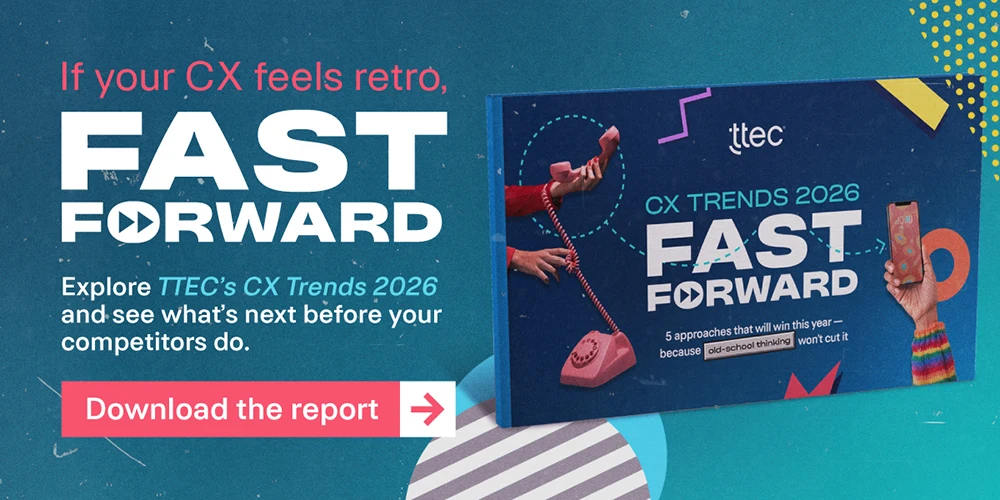
Makeover of health plan’s knowledgebase sends engagement and accuracy soaring
NPS survey exposes how flawed system design forced users to devise their own workarounds
Makeover of health plan’s knowledgebase sends engagement and accuracy soaring
NPS survey exposes how flawed system design forced users to devise their own workarounds
Proof, not promises:
knowledgebase
eNPS score
KB engagement
accuracy
Having earned coveted 4.5 Star and 5 Star ratings for its health plans the same year it marked a significant anniversary milestone, a regional health plan had much to celebrate.
It wasn’t long before one aspect of operations left something to be desired, however: The knowledgebase, that indispensable tool contact center healthcare advocates rely upon to assist members, was unwell. With another annual enrollment period fast-approaching, an overhaul was in order — and it would be the health plan’s own advocates who would drive the success of this makeover.
The challenge
The organization was keenly aware that its knowledgebase did not align with industry best practices. Despite investments in training, healthcare advocates resisted using the database as they should, undermining quality scores, call protocol compliance, handle times, and customer satisfaction. The company wanted to figure out why, then make changes.
The commitment to improve the knowledgebase was evident; the path forward less so. The health plan enlisted TTEC to assess its platform, identify remediation needed, and improve the tool so its efficacy reached a level befitting an organization with such a stellar reputation. The health plan offers the largest network of doctors and more members, products, and services than any other nonprofit in its home state.
Recognizing that users knew better than anyone why the knowledgebase was lacking — so much so that frustrated users went looking for answers elsewhere — TTEC conducted employee Net Promoter Score (eNPS) surveys to assess the knowledgebase’s searchability, accuracy, ease-of-use, and the overall experience. The survey also asked open-ended questions so healthcare advocates could provide additional feedback about specific pain points of the knowledgebase.
eNPS survey results identified the biggest challenges, including:
- A confusing, unwieldy password process that locked healthcare advocates out of the knowledgebase, which was particularly problematic for new hires.
- Poor tagging of resources housed in the knowledgebase, rendering articles and guides unfindable by search.
- Text-heavy, user-unfriendly content that was hard-to-digest quickly, especially while handling a live call with a member.
- Outdated content that users had to slog through to find what they needed, extending call handle times.
Our solution
TTEC integrated single sign-on (SSO) user authentication using system-generated login credentials to access various applications rather than user-created, hard-to-remember, application-specific passwords. SSO authentication enabled users to access the knowledgebase faster and more securely.
To improve accessibility of documents in the knowledgebase, an automatic prompt requested user feedback whenever their search efforts failed to return results. Encouraging user input at this moment in time, when search failed, was key because users who knew a document existed — and frustrated when they couldn’t find it — provided the details needed to flag documents lacking search tags so they could be properly labeled and made accessible to all.
Knowledgebase audits guided curation of content, based on user feedback, to discourage users from seeking answers elsewhere. Content was reorganized to better align with the chronological progression of a typical interaction, and the library grew by 49% with more useful, relevant materials.
Content format was vastly improved, too, converting some material to succinct bullets or tables for easier digestion. Visual aids were added to augment some of the text documents. TTEC also incorporated microlearning content — brief learning modules — with graphic representation of concepts to improve comprehension and retention of information.
When eNPS surveys revealed that users preferred using information from the health plan’s website over the knowledgebase because of its more visual, user-friendly design, TTEC applied the same design sensibility to the knowledgebase so that it would become the primary reference tool. Ongoing eNPS surveys, which ensure anonymity to encourage honest input, provided a continuous feedback loop driving future improvements to the knowledgebase.
The results
Engagement with the knowledgebase surged 906%. Prior to optimization, the average number of hits to the knowledgebase during the annual enrollment period (AEP) was 1,251 per user. After optimization, each user interacted with the knowledgebase 12,587 times during this busy season because they recognized the tool’s value and used it in a more proactive fashion.
Knowledgebase user satisfaction, as measured by eNPS, rose from 48 (“favorable”) during one AEP season to 80 (“excellent”) during AEP two years later , a 67% improvement. Much of this improvement is credited to better usability. Satisfaction also got a boost when users witnessed their feedback turned into action, building trust, confidence, and enthusiasm for future knowledgebase enhancements.
Call accuracy increased to 96% during the annual enrollment period — up from 93% during the AEP two years prior. This performance improvement is tied to increased usage of the knowledgebase containing precise and dependable information used during member interactions.












